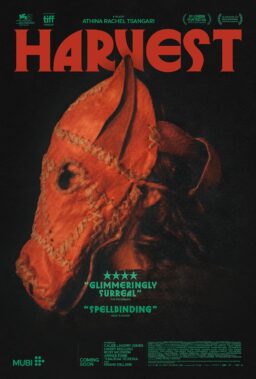It’s always fun to find random connections at film festivals. And so seeing two films on back to back days about leaders who were arguably undone by their raging libidos makes for a funny duo. The fact that both movies frustrated me more than I expected—although one way more than the other—is just another TIFF coincidence.
The superior film, by some stretch, is Paolo Sorrentino’s “Loro,” which finds the mega-talented Italian director returning to his world of Fellini-esque excess and his leading man Toni Servillo. The star of “Il Divo” and “The Great Beauty” plays Silvio Berlusconi, but we don’t even meet him until about an hour into the 150-minute movie, which was originally released as two 100-or-so-minute movies in Italy. If you’re good at math, you can discern that there’s quite a bit missing in this combined version, which exists primarily to be eligible for Oscar consideration. I’m eager to see the separate versions because there’s something lost in the mash-up.
“Loro” opens by introducing us to a player named Sergio (an effective Riccardo Scarmacio), who basically gets close to men of power by appealing to their basic instincts. He’s the kind of guy who has a stable of beautiful women willing to do whatever he says to keep the political wheels greased. But Sergio wants to play with the biggest dog in Italy, the notorious Berlusconi, captured here late in his political cycle from about 2006 to 2009 but still one of the most recognizable leaders in the world. He may be basically in exile in his Sardignia home and in a marriage that seems increasingly stale, but people still need his influence and blessing. And Berlusconi wants to maintain the power he has remaining and maybe even lead Italy again. Sergio wants to be there when that happens, and so he rents a home near Berlusconi’s and stocks it with half-naked women and mountains of drugs, just trying to get his attention. He gets it.
People who live in a world of excess like Sergio clearly fascinate Sorrentino, who has chronicled the impulses of the powerful before, but this features that aspect of his work to date turned up to eleven. In many ways, it is his “Wolf of Wall Street,” a vision of the modern fall of the Roman Empire with scene after scene of carefully-choreographed drug and sex parties; MDMA and cocaine are primary motifs. Some of the visuals in “Loro” are unforgettable, such as a party sequence with colorful pills falling from the sky in slow motion and an exploding garbage truck, but it gets numbing after a while. There’s a narrative slack to “Loro” that almost makes one wonder if Sorrentino wouldn’t rather just be shooting music videos. This is even more prominent when the film shifts to Berlusconi and pretty much leaves Sergio (and a few other interesting supporting characters behind). I’m guessing the transition is smoother in the complete form, but the film practically causes viewer whiplash in its move from fetishing excess to castigating it. There are enough fantastic sequences in “Loro,” and another great performance from Servillo, but this is a slight disappointment given what we’ve come to expect from Sorrentino.

There’s nothing slight about the disappointment I felt from Jason Reitman’s “The Front Runner,” the cinematic equivalent of porridge—bland, mushy, and without much personality of its own. Reitman attempts to teach viewers a lesson about how politics changed with the fall of U.S. senator Gary Hart, but does so without passion or even a defined viewpoint. There are a remarkable number of familiar faces in “The Front Runner,” but they’re all wasted, especially the women, in a film that feels like it never figured out what it wanted to say. Someone had to make a movie about Gary Hart eventually, and so here it is.
The film stumbles from the outset, telling us that Hart was a leader and a potentially fantastic President without ever really showing us why. There’s too little sense of what was lost when the Miami Herald learned that Democratic front runner Hart (Hugh Jackman) was fooling around with Donna Rice on a boat ironically called the Monkey Business. Taking us into the war room of Hart’s campaign as well as the offices of the Herald and Washington Post, the two driving forces behind breaking the story, “The Front Runner” looks ambitious on paper and has a ridiculously talented cast that also includes J.K. Simmons, Alfred Molina, Vera Farmiga, and many more. It looks like something that could offer a commentary on the increasingly tempestuous dynamic between press and President, and provide insight into how we got to a point in which image matters more than message. It’s truly disheartening that the movie doesn’t.
Unsure about how much we should ask of our candidates—the material that attempts to balance out the fact that Hart was professing moral backbone while cheating is particularly wishy-washy—“The Front Runner” never comes to a conclusion about the fairness of what happened to Hart or even how it impacted politics to come. Reitman is too interested in overlapping dialogue Altman-style in an effort to show his skill with ensemble to give the piece the urgency and depth it so desperately needed. If you know absolutely nothing about Hart’s rise and fall, there could be some historical value here. If you’re as old as I am and remember the facts, there’s just no reason to care.












